Heartburn, a prevalent discomfort experienced by many, arises from the stomach’s acidic contents moving back into the esophagus. This sensation often leads to a burning feeling in the chest, typically after eating. While various factors, including certain lifestyle choices and dietary habits, can trigger heartburn, understanding and integrating specific foods into one’s diet can offer relief. This article explores some natural remedies, focusing on foods known for their soothing properties, and aims to provide valuable insights into managing heartburn effectively through dietary adjustments.
Ginger
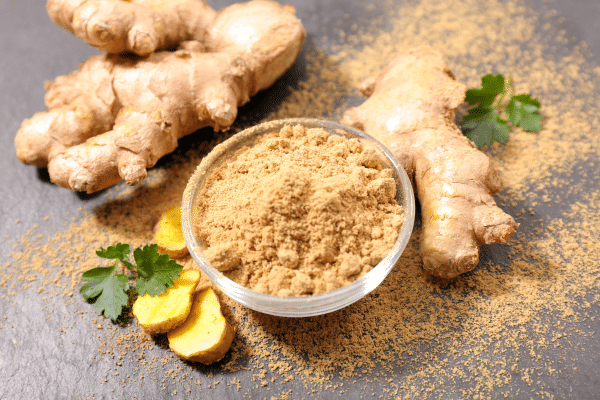
Ginger, revered for its medicinal properties for centuries, stands out as an effective remedy for heartburn. Its anti-inflammatory properties aid in calming the digestive system, reducing irritation in the esophagus. Incorporating ginger into the diet not only helps in managing gastrointestinal discomfort but also contributes to overall digestive health. However, moderation is key, as excessive amounts might lead to discomfort. Adding ginger to daily meals, whether as a spice in cooking, a fresh slice in tea, or even as a chewable supplement, can help in harnessing its benefits for heartburn relief.
The versatility of ginger allows for easy integration into various recipes, catering to different tastes and preferences. It’s essential to consider individual tolerances, as ginger can interact with certain medications and health conditions. Consulting with a healthcare provider before making significant changes to the diet, especially when incorporating potent ingredients like ginger, ensures safety and efficacy in managing heartburn symptoms.
Bananas

Bananas, known for their smooth, creamy texture and natural sweetness, offer more than just flavor. They are a rich source of natural antacids, making them an excellent choice for soothing an upset stomach and reducing heartburn. The protective properties of bananas help in reinforcing the stomach’s mucous membrane barrier, creating a protective layer against acidic irritation. Regular consumption of bananas, preferably ripe for easier digestion, can contribute to maintaining a healthy balance in stomach acidity.
While bananas are a beneficial addition to a heartburn-friendly diet, it’s crucial to consider individual digestive responses. For some, bananas might cause discomfort, especially if consumed in large quantities or when not fully ripe. Introducing bananas gradually into the diet and observing the body’s reaction helps in determining the right balance and ensuring that this fruit serves as a remedy rather than a trigger for heartburn.
Oatmeal
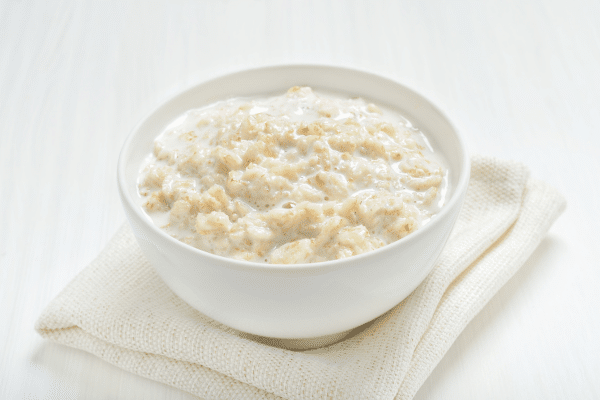
Oatmeal, a staple breakfast choice for many, offers substantial benefits for those dealing with heartburn. The high fiber content in oatmeal aids in digestion and helps in absorbing stomach acid, reducing the symptoms of heartburn. Moreover, oatmeal provides a soothing effect on the stomach lining, offering relief from the irritation caused by acid reflux. Including oatmeal in the daily diet, preferably without high-fat milk or sugar, can significantly alleviate heartburn symptoms and promote a healthier digestive system.
Incorporating oatmeal doesn’t have to be monotonous; it can be versatile and delicious. Experimenting with toppings like fresh fruit or a dash of cinnamon can enhance the flavor without triggering heartburn. It’s crucial, however, to be mindful of individual triggers, as certain additions might counteract the beneficial effects of oatmeal. Observing the body’s response to different combinations can help in identifying the most comforting and effective way to enjoy oatmeal.
Broccoli
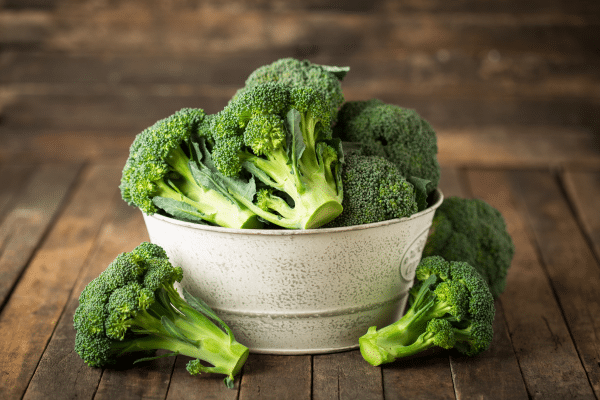
Broccoli, a nutrient-rich vegetable, is highly beneficial for those experiencing heartburn. Its high fiber content promotes healthy digestion and helps in preventing the reflux of stomach acid into the esophagus. Additionally, broccoli is packed with essential nutrients and antioxidants, supporting overall health and aiding in the healing process of the digestive tract. Regular consumption of broccoli, ideally steamed to preserve its nutrients and make it easier to digest, can play a significant role in managing heartburn symptoms.
While broccoli offers numerous health benefits, it’s important to consider individual dietary reactions. Some might find broccoli difficult to digest, potentially leading to gas or bloating. Introducing broccoli gradually into the diet and observing the body’s response is crucial in ensuring that it serves as a remedy for heartburn. Pairing broccoli with other heartburn-friendly foods can also enhance its effectiveness and provide a balanced and nutritious meal.
Yogurt
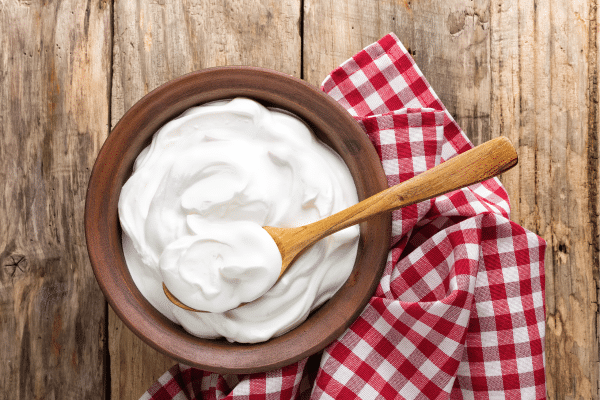
Yogurt, especially when it contains live probiotics, can be a soothing ally in the battle against heartburn. The probiotics in yogurt contribute to a balanced gut flora, aiding in digestion and reducing the occurrence of acid reflux. Additionally, yogurt’s cool and smooth texture provides immediate relief to the irritated esophageal lining. Opting for low-fat or fat-free versions of yogurt can prevent the exacerbation of heartburn symptoms, making it a safe and effective addition to a heartburn-friendly diet.
Despite its benefits, yogurt should be consumed with caution, as individual responses can vary. For some, dairy products might worsen heartburn symptoms. It’s advisable to choose plain yogurt without added sugars or flavors, as these can trigger acid reflux. Experimenting with incorporating yogurt into different meals or enjoying it as a snack can help in determining the right amount and frequency to obtain its benefits without discomfort.
Almonds
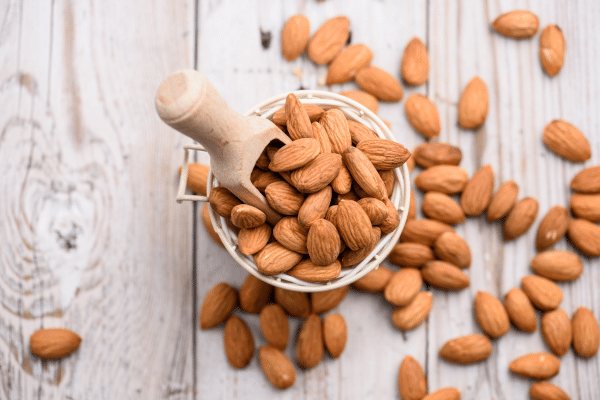
Almonds, a nutrient-dense snack, offer unique benefits for individuals suffering from heartburn. The high oil content in almonds helps in neutralizing stomach acid, providing relief from heartburn. Additionally, almonds are a good source of fiber, which aids in digestion and prevents the backward flow of stomach contents. Consuming a small number of almonds after meals or as a snack can help in managing heartburn symptoms and promoting a healthy digestive system.
It’s important, however, to be mindful of the quantity of almonds consumed, as they are high in fats and calories. Overconsumption might lead to weight gain, which can exacerbate heartburn symptoms. Moderation is key when incorporating almonds into the diet. Observing how the body responds to almonds and adjusting the quantity accordingly ensures that they provide relief rather than contribute to digestive discomfort.
Watermelon

Watermelon, with its high water content and alkaline properties, is an excellent food for managing heartburn. The alkalinity of watermelon helps in neutralizing stomach acid, providing a soothing effect on the stomach and esophageal lining. Additionally, the water content aids in digestion and helps maintain hydration, which is essential for a healthy digestive system. Consuming watermelon as part of a balanced diet can offer relief from heartburn and contribute to overall digestive health.
While watermelon is generally beneficial for heartburn, it’s essential to consume it in moderation. Too much watermelon or consuming it too quickly can lead to an overfilling of the stomach, potentially triggering acid reflux. Enjoying watermelon in moderate amounts, preferably between meals as a snack, ensures that it provides relief without overwhelming the digestive system.
The Bottom Line
Managing heartburn extends beyond mere medication; it involves a holistic approach, incorporating dietary adjustments and lifestyle changes. The foods discussed, ranging from the soothing properties of ginger to the alkaline nature of watermelon, offer natural remedies to alleviate heartburn symptoms. While these foods are generally beneficial, it’s crucial to remember that individual responses can vary. Observing the body’s reaction to different foods and maintaining a balanced diet are key. Coupled with regular physical activity and stress management, these dietary choices can significantly improve quality of life for those suffering from heartburn. Remember, when in doubt, consulting a healthcare professional for personalized advice is always the best course of action.


